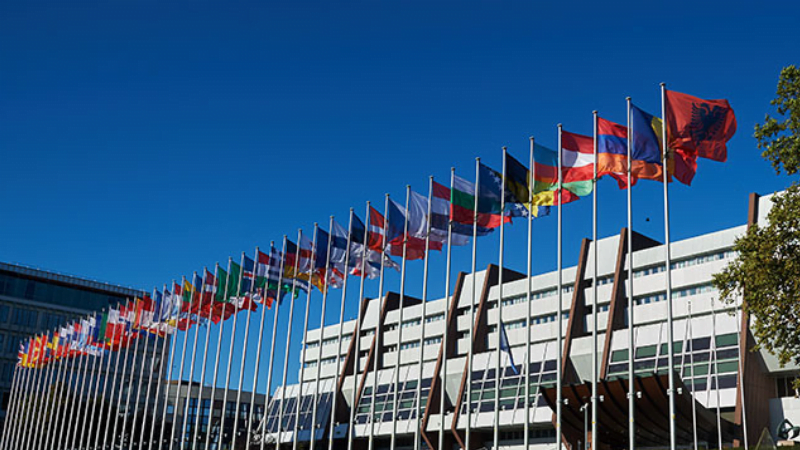The latest annual report on the state of democracy, human rights and the rule of law, published by the Council of Europe’s Secretary-General Marija Pejčinović Burić has identified a “clear and worrying degree of democratic backsliding”. This includes challenging the independence of judiciaries, a decline in freedom of expression, shrinking space for civil society, and the lack of resources for anti-corruption authorities.
“In many cases, the problems we are seeing predate the coronavirus pandemic but there is no doubt that legitimate actions taken by national authorities in response to COVID-19 have compounded the situation. The danger is that our democratic culture will not fully recover,” said the Secretary-General.
Based on the findings of different Council of Europe bodies, including the European Court of Human Rights, the Commissioner of Human Rights, and opinions of the Venice Commission, the Secretary General’s report evaluates the recent developments in areas such as political institutions and judicial independence, freedom of expression and association, human dignity, anti-discrimination, and democratic participation.
The report starts by acknowledging that despite the many challenges identified, some positive developments did occur. Sweden and the Netherlands for example, adopted action plans for the protection of freedom of expression, while Ukraine and France set up response procedures to coordinate the follow-up to alerts published on the Council of Europe safety of journalists platform.
The report also notes that in Malta, following a resolution by the Parliamentary Assembly of the Council of Europe, the government established an independent public inquiry into the 2017 assassination of Daphne Caruana Galizia, which is still ongoing.
However, based on the evidence from across the work and activities of the Council of Europe, the overall picture that emerged is one where Europe’s democratic environment and institutions are mutually reinforcing decline.
The report found how that in a number of Council of Europe Member States, national courts received an increasing number of challenges to the actions of the executive power and that legislation or intervention in recent years has been used more frequently to facilitate political influence over judicial appointments and the composition and functioning of judicial self-governing bodies.
These issues were further exacerbated by the COVID-19 pandemic that resulted in new court procedures, a predictable backlog in cases, and delays to important judicial appointments.
Freedom of expression is the second area of concern addressed in the publication that describes the increase in violence against journalists, including murders with impunity, that have risen sharply during the public health crisis in a number of Member States along with censorship and reprisals for questioning government policies.
The report further notes how the wrongful imprisonment of journalists and smear campaigns against them, sometimes led by politicians or public officials, remains a problem as does the increase in online hate speech.
The Secretary-General’s report also expressed concerns about the number of civil lawsuits being used to silence critical voices. Cases were recorded in Austria, Croatia, Malta, Poland, and the UK. In October 2020, the Commissioner for Human Rights noted several instances where journalists and others faced dozens of specious lawsuits, including Daphne Caruana Galizia, who was facing over 40 defamation suits at the time of her assassination.
In an increasing number of States, the space for civil society continues to shrink. Peaceful public events are often being treated as dangerous, and governments are using legitimate concerns about issues such as terrorism to attack selected non-governmental organisations (NGOs) and public events.
In recent years, restrictive legislation has been introduced and a number of government-led campaigns have been observed against selected associations, human rights defenders, and civil society leaders with further restrictions being implemented because of the pandemic.
In a number of Council of Europe Member States, anti-corruption authorities remain under-resourced, and without adequate infrastructure, lacking in competence and capacity, and without sufficient transparency in their decision making.
The report found that a number of countries still have weak implementation and enforcement of important public integrity and anti-corruption frameworks. Based on the European Commission’s 2020 “Rule of Law report” the Council of Europe’s assessment found that in Malta, the anti-corruption authorities lack the capacity to perform functions independently of the executive since the findings in all investigations are to be reported to the Ministry of Justice which does not have a statutory obligation to take follow-up action.
It also mentions how Malta lacks a procedure for appointing the Financial Intelligence Unit (FIAU in Malta) director by the FIU board of governors, thus “casting doubts on the independence of the FIU director in operational decision making”.
The report encourages Member States to use existing and future Council of Europe measures to address many of the challenges identified, on the basis of four key values: National authorities should return to fundamental democratic principles and recommit to Council of Europe legal standards; Member States should fully embrace the multilateralism embodied by the Council of Europe; COVID-related limitations and measures must not only be necessary and proportionate but also limited in duration and national authorities should embrace democratic culture, recognising where their words, activities or legislation have contributed to diminishing that culture.













It is not the proof of ticking boxes and wrapping them in a mix of blinding colours and artificial designs, that awards a country a well deserved ‘AAA’ rating, but it is, the genuine raw ingredients a master chef diligently selects and mixes together, to produce an everlasting blue chip product, called Reputation.
Where we had a really good stew going, it has now been reduced to a dogs dinner made up of scraps and old pickings to bulk it out. Now not even the dogs think it’s fit for purpose, and it’s beginning to smell.